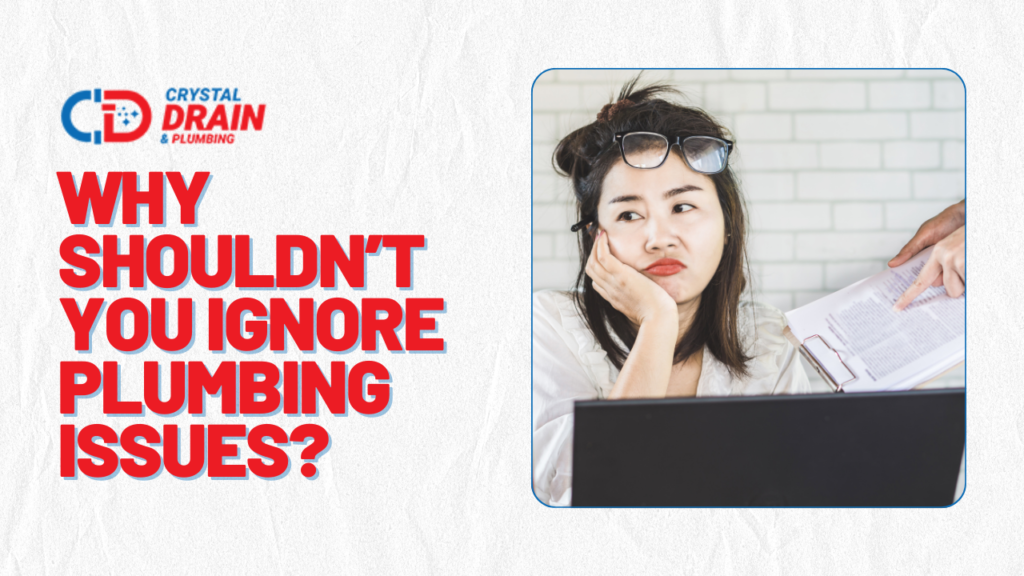- Last updated: January 14, 2025
Risks Involved with Ignoring Plumbing Problems

Your plumbing system is an essential part of your home, and maintaining it is crucial to avoid costly and dangerous issues down the line. Ignoring plumbing problems can lead to a range of risks that may affect both your home and your health. Taking proactive care of your plumbing system helps prevent these problems and ensures the longevity of your home’s infrastructure.
Key Takeaways
- Prevent Health Risks: Addressing plumbing issues promptly helps avoid mold growth and the associated health risks.
- Avoid Property Damage: Fixing leaks and clogs early prevents damage to your home’s structure, walls, and floors.
- Save Water: Timely repairs can prevent significant water waste, saving thousands of liters annually.
- Ensure Water Quality: Maintaining your plumbing system helps ensure that your water remains clean and safe.
- Eliminate Bad Odors: Proper plumbing care eliminates the risk of bad odors caused by sewage leaks.
Financial Implications of Ignoring Plumbing Issues
Ignoring plumbing problems doesn’t just lead to structural and health issues—it can also have significant financial consequences. Delayed repairs often escalate into more extensive damage, which can result in hefty repair bills. Here’s a closer look at how ignoring plumbing issues can affect your finances:
Increased Repair Costs
Minor plumbing issues, if left unattended, can develop into major problems requiring extensive repairs. For example, a small leak can evolve into a burst pipe, necessitating costly emergency services and repairs to your home’s structure and water damage remediation.
Higher Utility Bills
Leaky faucets, toilets, and pipes contribute to unnecessary water usage, driving up your utility bills. Even a seemingly insignificant drip can result in hundreds of dollars wasted over the course of a year.
Reduced Property Value
Plumbing issues can significantly reduce your home’s value. Potential buyers are likely to be deterred by the prospect of costly repairs or a history of plumbing problems, leading to a lower sale price or difficulty selling the property.
Insurance Implications
Many insurance policies require homeowners to maintain their plumbing systems. Ignoring plumbing issues may result in denied claims if damage occurs due to neglect, leaving you to cover the repair costs out of pocket.
Cost of Health Care
Exposure to mold and contaminated water can lead to health issues requiring medical attention. The associated healthcare costs can add up quickly, further straining your finances.
By addressing plumbing problems promptly, you can save money in the long run and protect the value of your home.
Dangers of Overlooking Plumbing Issues
Mold Growth
When water accumulates over time in your walls or under your floors, it creates an ideal environment for mold growth. Mold can cause a range of health issues, particularly for those with allergies or respiratory conditions, leading to symptoms such as a runny nose or shortness of breath.

Sewage Backup
A sewage backup occurs when the main pipe is clogged with debris, causing sewage water to flow back into your home. This not only creates unpleasant odors but can also pose significant health risks and require extensive cleanup and repairs.

Internal Damage
Plumbing issues, such as leaking pipes, can lead to significant damage to your home’s walls and floors. Over time, the structural integrity of your floors can be compromised, leading to potential safety hazards.

Water Waste
Leaky pipes and faucets contribute to enormous water waste. According to the United States Environmental Protection Agency, a single faucet dripping one drop per second can waste over 10,000 liters of water annually. This not only impacts the environment but also leads to higher water bills.

Water Contamination
Leaks can lead to water contamination, as the mix of clean water with contaminants can pose serious health risks. Ensuring that your plumbing system is intact prevents the possibility of drinking or using contaminated water.

Bad Odors
Leaking sewage pipes can emit unpleasant odors, indicating water damage and potential issues with your plumbing system. These bad smells are not only bothersome but also a sign of deeper plumbing issues that need immediate attention.

FAQs About Plumbing Problems
Common signs include unexplained increases in water bills, damp spots, mold growth, and dripping sounds.
Contact a licensed plumber immediately to assess and fix the issue before it worsens.
It’s recommended to have a professional inspection at least once a year to catch potential issues early.
Even small issues can escalate quickly, leading to bigger problems and higher costs. It’s best to address them as soon as possible.
Regularly check for leaks, install water-efficient fixtures, and use water-saving practices like turning off the tap when not in use.
By staying proactive with your plumbing maintenance, you can avoid these risks and keep your home safe, efficient, and comfortable.
